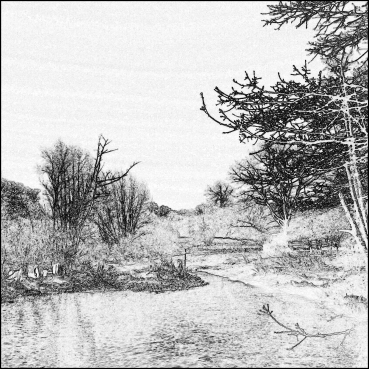I know it’s hardly five minutes since the last album, but I’ve actually been working on this one since last year.

Brookland Voices started as another vaguely folky album, but somehow Messrs Yeats (subsequently moved to the ‘Swan Songs’ album) and Housman elbowed their way in. Then I found myself with all these improvised or semi-improvised guitar pieces, some of them played on electric rather than acoustic guitar, and they do seem to dominate the album. In fact, while I would never claim to be any sort of jazz guitarist, this is probably as near to a jazz album as I’ll ever get. To be fair, ‘South Wind’ and ‘The Water is Wide’ are instrumental versions of traditional songs/tunes.
‘Severn Years In The Sand’ is a version of a song that seems to have arisen during World War II among units that saw service in the Middle East. ‘The Knocker Up’ and ‘It Ain’t Gonna Rain are actual folk songs. ‘When I Was In Love With You’, ‘Far In A Western Brookland’, ‘When I Was One-And-Twenty’ and ‘Blue Remembered Hills’ are settings of verse by Housman. The song ‘A Rainy Day Blues’ and the other instrumentals are my own, including ‘Chivalry’, which is an instrumental based on my own ‘Song of Chivalry’.
